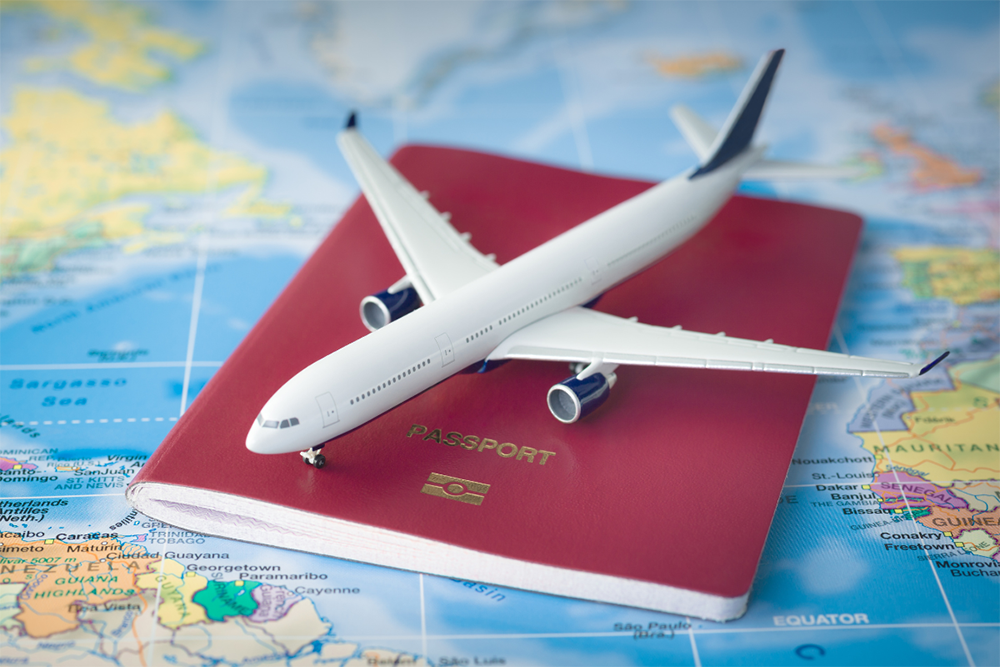
Export & Security Compliance
International Travel

International Travel
International travel by Texas Tech University personnel may trigger obligations under U.S. export control and sanctions laws. These regulations restrict the unlicensed transfer of certain items, software, technology, and payments to or from foreign countries, entities, and individuals for reasons of national security, foreign policy, or protection of trade.
All TTU travelers are required to comply with these laws. The Office of Export and Security Compliance (OESC) provides pre-travel screening, advisory support, and license determination services to help ensure legal compliance.
When to Contact OESC
Before you travel internationally, consult OESC if:
- You plan to bring TTU-owned equipment, proprietary data, or research materials
- You are traveling to a sanctioned or embargoed country (e.g., Cuba, Iran, North Korea, Syria)
- You are presenting, collaborating, or sharing information that is not publicly available
- You will be interacting with foreign nationals or institutions that require a Restricted Party Screening
Submit your travel application at least 30 days in advance to allow for proper compliance screening and license review, if necessary.
What Is Considered an Export During Travel?
The following are considered exports under U.S. law when taken abroad:
- Laptops, flash drives, mobile phones, and tablets containing proprietary data or controlled software
- Research data or information that is not published or not in the public domain
- Presentations or discussions that involve technical information, even informally
- Biological or chemical samples, technical schematics, prototypes, or encryption software
Even hand-carrying an item or accessing data from a cloud server while abroad may constitute an export and, in some cases, require a license.
Best Practices for International Travel
- Travel light: Only take devices and materials that are essential for your trip. TTU Information Technology Services (ITS) offers loaner devices preloaded with minimal data for secure international use. Visit askIT to request equipment.
- Limit your discussions: Avoid disclosing sensitive, unpublished, or export-controlled information, even in informal conversations or public forums.
- Keep devices secure: Update antivirus software, apply the latest security patches, and avoid using unsecured networks abroad.
- Screen your destination and contacts: Visual Compliance automatically screens your travel request against U.S. government lists of restricted countries and individuals. This screening is built into the travel registration process.
Travel to Embargoed or High-Risk Countries
Travel to countries subject to U.S. sanctions (e.g., Iran, Cuba, North Korea, Syria) typically requires a license and may be prohibited without prior federal authorization. OESC will assess your travel and coordinate a defensive travel briefing as appropriate for high-risk destinations.
If you are unsure whether your destination poses export control concerns, contact OESC as early as possible.
Before You Go – Travel Compliance Checklist
- Verify whether your research qualifies for the Fundamental Research Exclusion
- Only bring published, publicly available, or educational materials
- Request a loaner device from ITS for secure travel
- Submit your travel form at least 30 days in advance
- Review country-specific guidance via the U.S. State Department Travel Advisories
- Enroll in the STEP Program to register with a U.S. embassy or consulate while abroad
For travel screening, guidance, or questions about what you can take abroad, contact the Office of Export and Security Compliance (exports.vpr@ttu.edu) before your departure.
Office of Export & Security Compliance
-
Address
Administration, 2625 Memorial Circle, Box 41075, Lubbock, TX 79409-2007 -
Phone
806.742.3905 -
Email
exports.vpr@ttu.edu
